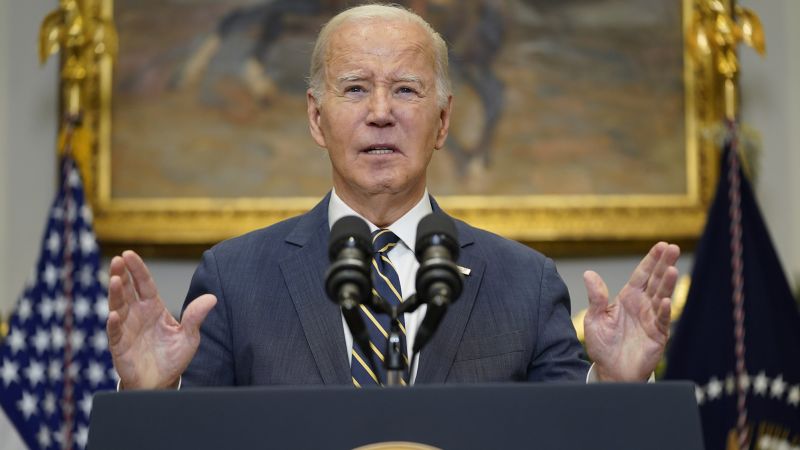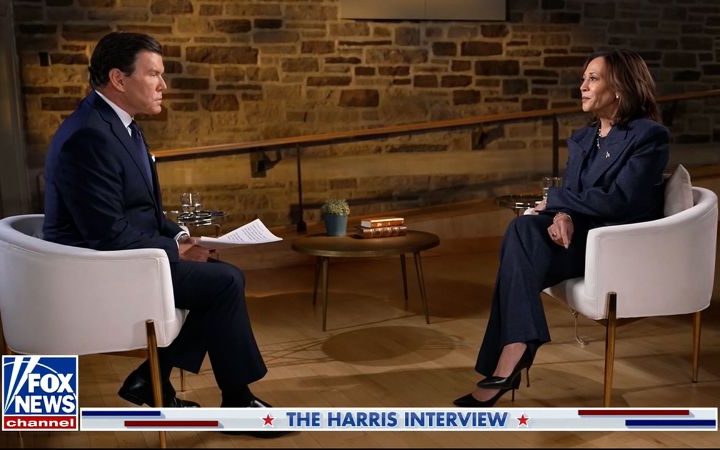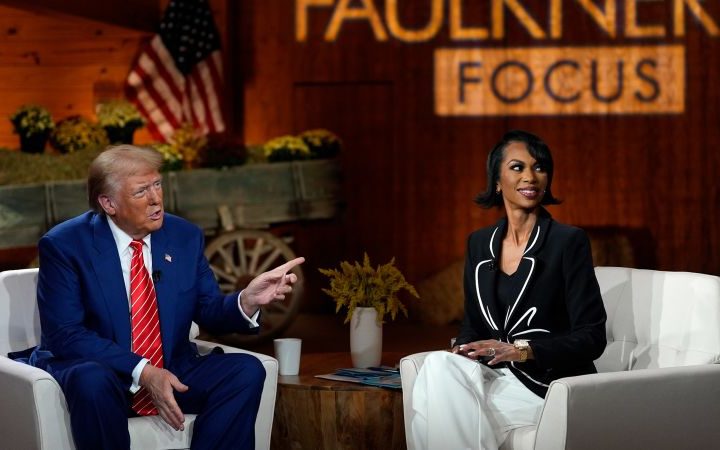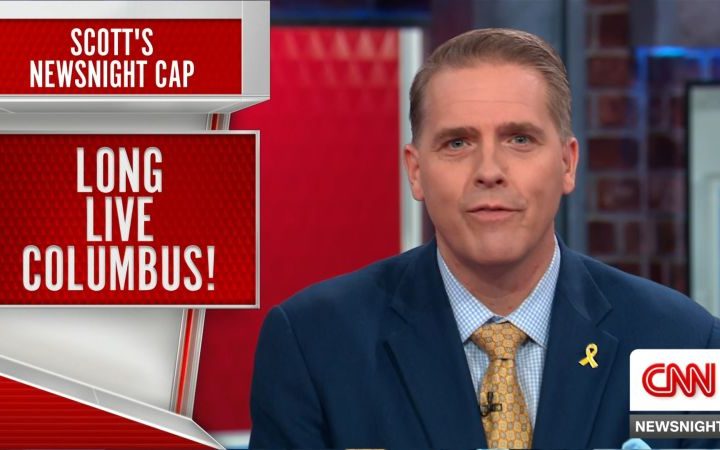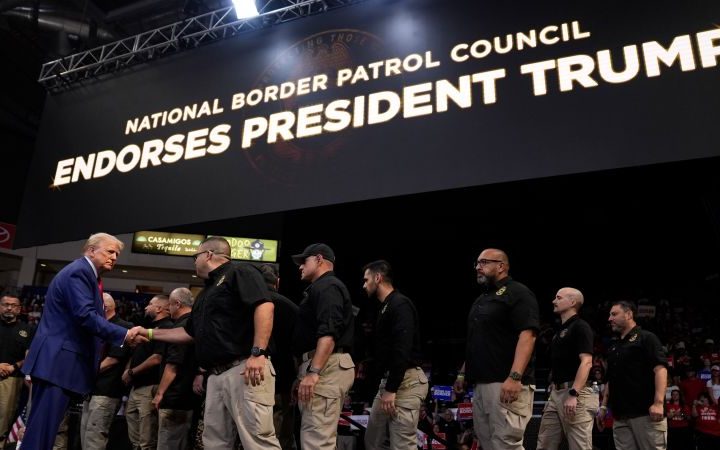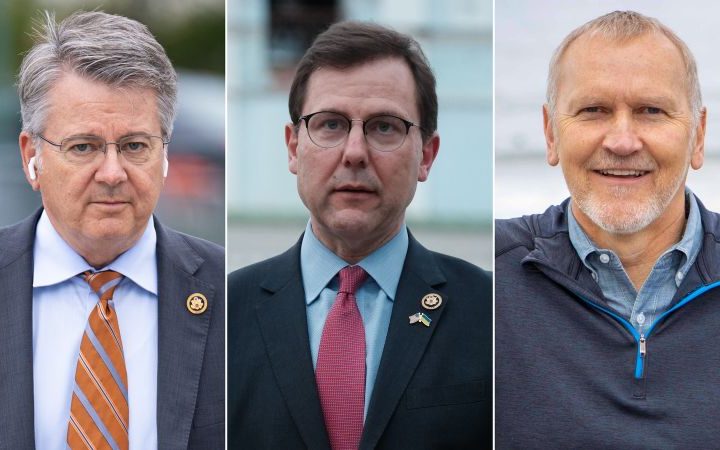President Joe Biden is sending a clear message to Democratic negotiators on Capitol Hill that he is open to striking a compromise with Republicans on border security in order to get talks on funding for Ukraine back on track.
During his impassioned speech in the White House’s Roosevelt Room on Wednesday, Biden said he felt Republicans haven’t been willing to make a deal, though some have since expressed optimism about the direction of negotiations.
“I am willing to make significant compromises on the border. We need to fix the broken border system, it is broken. And thus far, I’ve gotten no response,” he said as he made a fresh appeal to lawmakers, adding that failure to reach a compromise would serve as a “gift” for Russian President Vladimir Putin.
But, he added, “This has to be a negotiation.”
“Republicans think they can get everything they want without any bipartisan compromise,” the president said. “That’s not the answer. … And now they’re willing to literally kneecap Ukraine on the battlefield and damage our national security in the process.”
If struck, a deal could end a stalemate that the president said imperils the future of Ukraine’s sovereignty and democracy around the world, while also upheaving US immigration policy, which has served as an intractable issue in Congress for decades.
Acknowledging the country’s immigration system is “broken,” Biden made direct overtures toward Republicans who want policy changes along the border, saying he is willing to do “significantly more” than he has already proposed. He also signaled an openness to changing policy – but was vague on what exact policy changes he would consider.
Some of the changes that the White House has expressed openness to are reminiscent of the Trump-era that previously received fierce pushback from advocate, according to three sources familiar with the discussions.
Sources tell CNN the changes the White House telegraphed to the Hill included, for example, raising the credible fear standard for migrants seeking asylum, which could have the effect of making fewer migrants eligible for asylum. They also were open to casting a wider net of undocumented immigrants subject to the fast-track deportation procedure known as “expedited removal,” which the Trump administration tried to do and would give greater latitude in quickly deporting undocumented immigrants.
Republicans, including leading negotiator Sen. James Lankford of Oklahoma, had accused Biden and Democrats of “throwing more money at this problem” instead of seeking a real solution. In addition to about $60 billion in economic and military aid to Ukraine, Biden’s $106 billion supplemental request already allocates $14 billion for border security. Billions more would go toward Israel and Taiwan.
It appears that some progress has been made among lawmakers, even after Senate Republicans scuttled the supplemental funding bill for Ukraine on Wednesday night.
“I think we’re pretty close to it,” said Rep. Tony Gonzales, whose Texas district includes 823 miles of the US-Mexico border.
Gonzales told CNN he wants to see more concessions from Democrats in border policy negotiations, but expressed optimism over the direction of talks.
“There needs to be more,” Gonzales said when asked about the proposals the White House has floated. He said he wanted the Biden administration to carry out more deportation flights instead of focusing funds on soft-sided facilities that have been used for processing the influx of migrants.
Still, Gonzales described talks as “close.” He’s been in touch with Lankford, as well as other leading negotiators.
“We just have to have the administration realize that they have a problem,” Gonzales said.
“That problem is growing. That problem is expanding. And the problem is also solvable.”
But the situation on the Hill has led the White House to back off its confidence that Ukraine funding can get done in time.
Pressed by CNN’s MJ Lee during Thursday’s White House press briefing on whether or not the White House could offer Ukraine any assurances that additional funding is headed their way, White House National Security Council Coordinator for Strategic Communications John Kirby said, “We are not in a position to make that promise to Ukraine, given where things are on the Hill.”
The comments marked a stark departure from the confidence the administration has previously signaled about Congress’ ability to pass additional aid to Ukraine as it fights Russia’s invasion – during a briefing just last month, national security adviser Jake Sullivan told reporters he “continue[s] to remain confident that, while this has been a winding road since we began the effort to secure additional funding for Ukraine, that there is a strong bipartisan majority in both houses to do it and we will ultimately get it done.”
CNN’s Donald Judd contributed to this report.
Read the full article here
